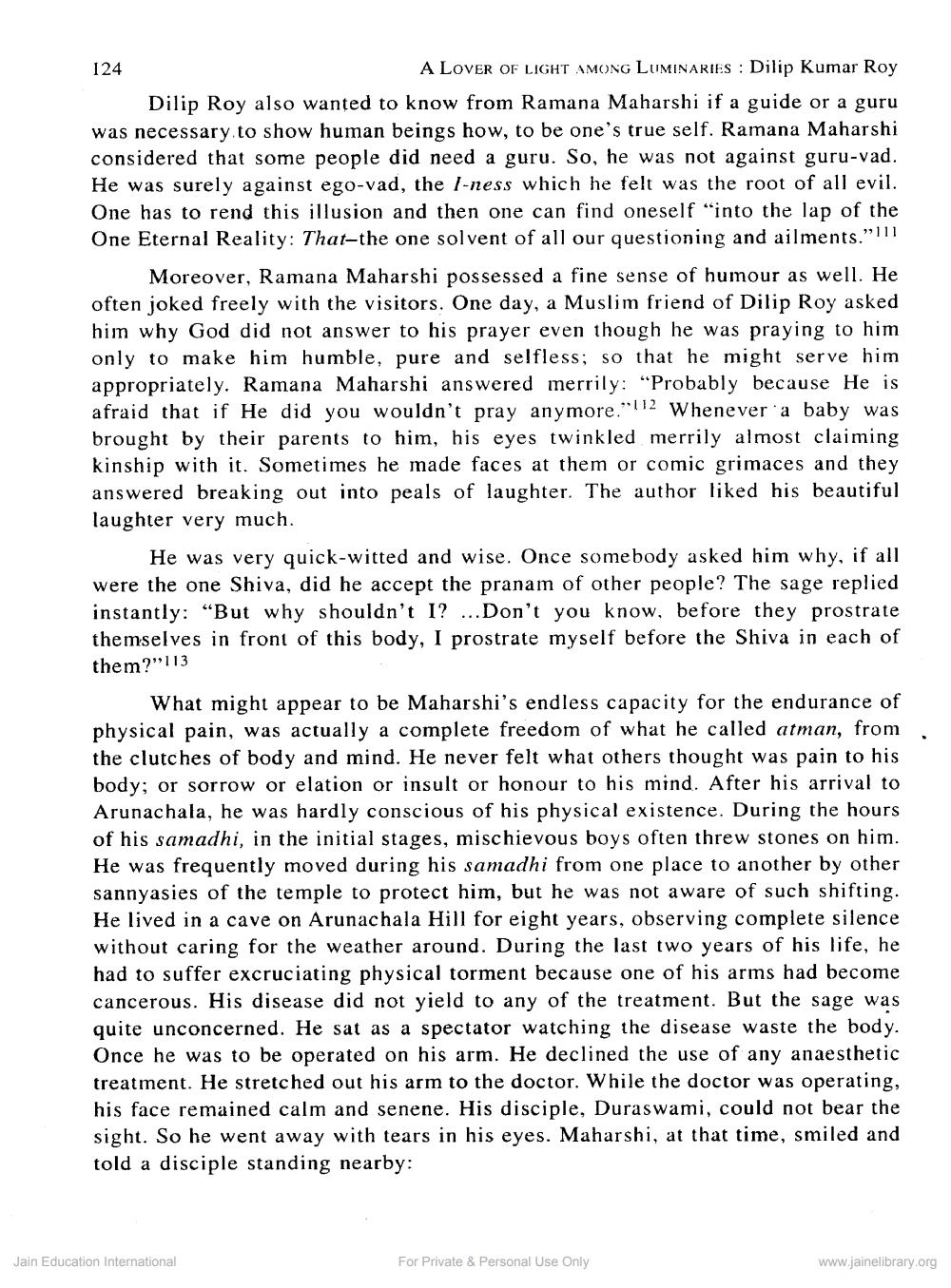________________
124
A LOVER OF LIGHT AMONG LUMINARIES : Dilip Kumar Roy Dilip Roy also wanted to know from Ramana Maharshi if a guide or a guru was necessary to show human beings how, to be one's true self. Ramana Maharshi considered that some people did need a guru. So, he was not against guru-vad. He was surely against ego-vad, the l-ness which he felt was the root of all evil. One has to rend this illusion and then one can find oneself "into the lap of the One Eternal Reality: That-the one solvent of all our questioning and ailments."!!!
Moreover, Ramana Maharshi possessed a fine sense of humour as well. He often joked freely with the visitors. One day, a Muslim friend of Dilip Roy asked him why God did not answer to his prayer even though he was praying to him only to make him humble, pure and selfless; so that he might serve him appropriately. Ramana Maharshi answered merrily: "Probably because He is afraid that if He did you wouldn't pray anymore."*112 Whenever'a baby was brought by their parents to him, his eyes twinkled merrily almost claiming kinship with it. Sometimes he made faces at them or comic grimaces and they answered breaking out into peals of laughter. The author liked his beautiful laughter very much.
He was very quick-witted and wise. Once somebody asked him why, if all were the one Shiva, did he accept the pranam of other people? The sage replied instantly: “But why shouldn't I? ...Don't you know, before they prostrate themselves in front of this body, I prostrate myself before the Shiva in each of them?"113
What might appear to be Maharshi's endless capacity for the endurance of physical pain, was actually a complete freedom of what he called atman, from the clutches of body and mind. He never felt what others thought was pain to his body; or sorrow or elation or insult or honour to his mind. After his arrival to Arunachala, he was hardly conscious of his physical existence. During the hours of his samadhi, in the initial stages, mischievous boys often threw stones on him. He was frequently moved during his samadhi from one place to another by other sannyasies of the temple to protect him, but he was not aware of such shifting. He lived in a cave on Arunachala Hill for eight years, observing complete silence without caring for the weather around. During the last two years of his life, he had to suffer excruciating physical torment because one of his arms had become cancerous. His disease did not yield to any of the treatment. But the sage was quite unconcerned. He sat as a spectator watching the disease waste the body. Once he was to be operated on his arm. He declined the use of any anaesthetic treatment. He stretched out his arm to the doctor. While the doctor was operating, his face remained calm and senene. His disciple, Duraswami, could not bear the sight. So he went away with tears in his eyes. Maharshi, at that time, smiled and told a disciple standing nearby:
Jain Education International
For Private & Personal Use Only
www.jainelibrary.org




